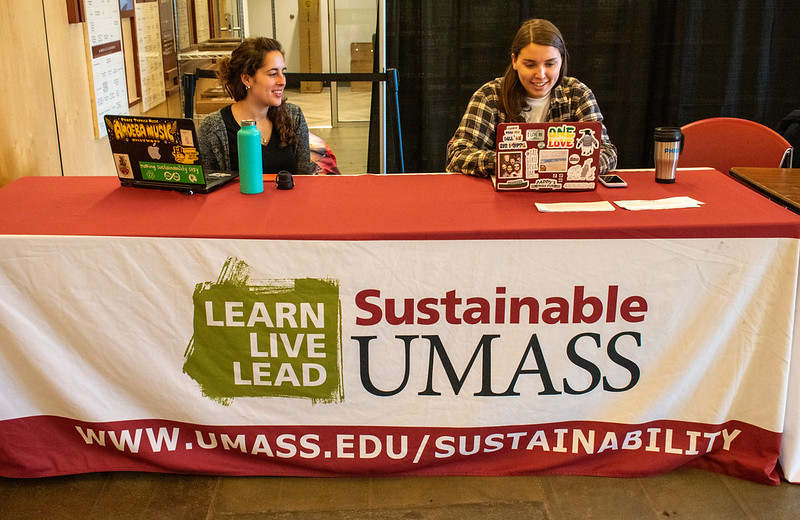I stand and watch the long line for grab n’ go. I see the trash begin to fill up and then overflow. It happens every day and I cannot imagine how much trash is being made for simply feeding our student body. The blame cannot be placed on the individual student because producing trash is so easy. The ease at which one can make trash has led the University of Massachusetts alone to generate around 3,000 tons of trash annually.
To put this into perspective, one ton of trash is roughly the size of one small car. This trash is polluting our waterways, hurting ecosystems and fills up landfills which release methane. Trash is not a pretty thing to think about, but it does not disappear when you throw it in a trash can. In fact, plastics will not decompose for upwards of 450 years.
Scientists have only been giving bleaker predictions for the state of the climate. In the last report from the Intergovernmental Panel on Climate Change, the United Nations’ guiding expertise on the environment, they stated that without immediate action we are going to face severe consequences. Plastics fit right into the problem of climate change. The production and disposal of plastics require a lot of fossil fuels. Even if we were to simply recycle all the plastic, industrial recycling is extremely energy intensive. We need to learn to live less wasteful lives and this needs to start at the corporate level.
UMass is a symbol in Massachusetts for its stellar education, research opportunities and residential life. However, it is lacking in environmental standards. Even though it preaches sustainable practices, we still rely heavily on plastic containers (for beverages, meals, etc.) and we get most of our energy from a natural gas power plant located on campus.
Not only do we produce and consume fossil fuels, but we also are sponsored by companies that are large plastic polluters. One example is our sponsorship with Coca-Cola. In 2020, Coca-Cola was named the world’s worst polluter for the third year in a row. Coca-Cola has a pouring rights practice with UMass, where it pays six million dollars so that their product is distributed exclusively on campus. I think this is an atrocity and it is clear that UMass has one clear goal: to make money.
UMass has the responsibility as a community member and a leader in innovation to lead the way and stop using single-use plastics. This may seem impossible but other schools have already committed to transitioning away from plastics. In fact, all University of California campuses will phase out various kinds of plastics by 2023, from single-use plastic bags to beverage bottles. This shows it is possible, it just needs to be considered a priority of the school.
I believe we have a moral responsibility to the environment and future generations to begin living more sustainability. I am demanding UMass to sign this campus pledge which will start UMass on the path to “Be Revolutionary” as we pave the way in sustainability. We can no longer wait for someone else to act. Instead, we need to step up and change how we operate now.
Caroline Williams can be reached at [email protected].



















